10 Most Sustainable Merino Wool Clothing Brands: The Conscious Consumer’s Guide
Affiliate Disclosure
Hey fellow impactful ninja ?
You may have noticed that Impactful Ninja is all about providing helpful information to make a positive impact on the world and society. And that we love to link back to where we found all the information for each of our posts.
Most of these links are informational-based for you to check out their primary sources with one click.
But some of these links are so-called "affiliate links" to products that we recommend.
Why do we add these product links?
First and foremost, because we believe that they add value to you. For example, when we wrote a post about the environmental impact of long showers, we came across an EPA recommendation to use WaterSense showerheads. So we linked to where you can find them. Or, for many of our posts, we also link to our favorite books on that topic so that you can get a much more holistic overview than one single blog post could provide.
And when there is an affiliate program for these products, we sign up for it. For example, as Amazon Associates, we earn from qualifying purchases.
What do these affiliate links mean for you?
First, and most importantly, we still only recommend products that we believe add value for you.
When you buy something through one of our affiliate links, we may earn a small commission - but at no additional costs to you.
And when you buy something through a link that is not an affiliate link, we won’t receive any commission but we’ll still be happy to have helped you.
What do these affiliate links mean for us?
When we find products that we believe add value to you and the seller has an affiliate program, we sign up for it.
When you buy something through one of our affiliate links, we may earn a small commission (at no extra costs to you).
And at this point in time, all money is reinvested in sharing the most helpful content with you. This includes all operating costs for running this site and the content creation itself.
What does this mean for me personally?
You may have noticed by the way Impactful Ninja is operated that money is not the driving factor behind it. It is a passion project of mine and I love to share helpful information with you to make a positive impact on the world and society. However, it's a project in that I invest a lot of time and also quite some money.
Eventually, my dream is to one day turn this passion project into my full-time job and provide even more helpful information. But that's still a long time to go.
Stay impactful,
The super fine and soft merino wool is an increasingly favorable clothing fabric. It has a comfortable feel and is resistant to odor, which helps reduce the washing frequency, saving energy and water. Merino wool is a wonderful natural material, but not without its impact, especially from the farming stage. Indeed, the large flock of thick-hair merino sheep can be troublesome to their pasture lands and the environment as a whole. Fashion greenwashing, too, makes it hard for you and all other consumers to determine which merino wool garments are truly sustainable. So, we had to ask: Which are the most sustainable merino wool clothing brands?
The most sustainable merino wool clothing brands are Patagonia, VAUDE, and Eileen Fisher, which cut down the carbon footprint, employ full traceability, and strive for circularity. In addition, Finisterre and Nui Organic use low-impact, high-quality materials and adhere to ethical practices.
Whether you are searching for a sweater, a pair of socks, or some sportswear to add to your wardrobe without negatively impacting the soil, the water, the animals, and other people, there is a brand for you. So, let’s keep reading to learn more about the most sustainable merino wool clothing brands and how they ensure sustainable, ethical practices.
Here’s How Sustainable Merino Wool Fabrics Generally Are
Merino wool is a biodegradable fabric made with the fleeces of merino sheep, which is a renewable resource. During the usage phase, merino wool clothing and household items can be washed sparsely, saving water and energy. As an animal-derived product, merino wool fabrics share the impact that farming has on the land and the merino sheep themselves. Such impact can be reduced by sourcing responsible, regenerative, and organic merino wool. It’s also important to note that recycled wool, merino variety included, is ranked class A—the most sustainable category of fibers by The Common Objective’s Made-By Environmental Benchmark for Fibres.
“Sustainable: The ability to be maintained at a certain rate or level | Avoidance of the depletion of natural resources in order to maintain an ecological balance”
Oxford Dictionary
To understand the sustainability of merino wool, we’ve assessed the life-cycle and each stage’s sustainability. This life-cycle assessment (LCA) is a method to evaluate the environmental impacts of products and materials. Here’s the quick summary of our LCA of merino wool!
What makes merino wool so sustainable: Recycled merino wool is considered the most sustainable merino wool variety because using discarded wool materials to make recycled wool fabrics reduces pressure on land, water, and other resources needed for rearing more wool-producing animals.
Additionally: Diverting discarded merino woolen fabrics back into the economy slows down the demand for land needed for waste storage.
Here’s How We Selected the Most Sustainable Merino Wool Clothing Brands
The brands on this list were chosen based on their commitment and actions to promote sustainable practices while reducing the environmental impacts of the textile industry.
They are transparent about their materials, processes, and workforce management within their supply chain.
Some brands focus their efforts on reducing waste and optimizing natural resources while others strive to reduce the carbon footprint of their clothes.
All of these brands share the commitment to reshape the textile industry toward a more sustainable and Earth-friendly sector.
These Are the 10 Most Sustainable Wool Clothing Brands
Most Sustainable Wool Clothing Brands
Overall, these merino wool clothing brands are sustainable. Yet, they take various approaches to reduce environmental impacts and uphold ethical standards. Let’s dive into each brand and find out more.
Patagonia: Everyday Wear for Those Who Care
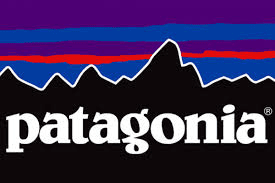

“Together, we can prioritize purpose over profit and protect this wondrous planet, our only home.”
Patagonia
🌎
How do they ensure their sustainability?
Patagonia puts sustainability at the center of their operation.
- They work to reduce, rather than simply offset, carbon emissions where it matters the most: in the supply chain and in material manufacturing. They reduce their carbon footprint by removing high-impact virgin fossil-based fibers from their collections, using “Environmental Profit and Loss” to guide their production decision, and helping their suppliers to cut emissions. For example, Patagonia’s fall 2023 collection was made up mostly of preferred materials (91% by fabric weight), including Regenerative Organic Certified fibers, hemp, man-made cellulose fibers, recycled cotton, and recycled polyester.
- On top of that, Patagonia’s Worn Wear Program encourages customers to repair and recycle their products, extending the textile lifecycle and reducing waste.
- Lastly, Patagonia is certified as a B Corporation and a Bluesign® brand.
🌐
How do they ensure their ethics?
Patagonia commits to fair trade practices. Through the partnership with Fair Trade USA, they currently produce 86% of their clothes in 20 Fair Trade Certified™ factories.
- Patagonia also pays a premium for every item produced in such factories, accumulating in a fund for workers to use in their chosen community projects, whether in healthcare or parent support or to withdraw as a cash bonus.
- Additionally, they have various social responsibility programs to prevent harm and create positive impacts on the lives of apparel workers in their supply chain. These include the Fair Labor Association, the Living Wage Program, the Migrant Workers Program, and the Responsible Purchasing Practices.
- Patagonia is also fully transparent about the locations of their facilities and suppliers.
🤝
Are they part of any giving-back programs?
Since 1985, Patagonia has pledged 1% of sales annually to environmental causes. They have awarded over $89 million in cash and in-kind donations to domestic and international grassroots environmental groups, making a difference in their local communities. In 2022, the founder of Patagonia gave away his family’s ownership of the company to the newly created Patagonia Purpose Trust and the not-for-profit organization Holdfast Collective, ensuring that all future profits from the company are used to fight the climate and extinction crisis.
🛍️
What is their product range?
- Best for: kidswear, menswear, womenswear
- Product range: shirts, pants, jackets, blazers, hoodies, sweatshirts, T-shirts, shorts, plus-size
- Price range: $$$
- Size range: XXS–XXXL
VAUDE: Outdoor Gear and Apparel Where Performance Meets Ecology

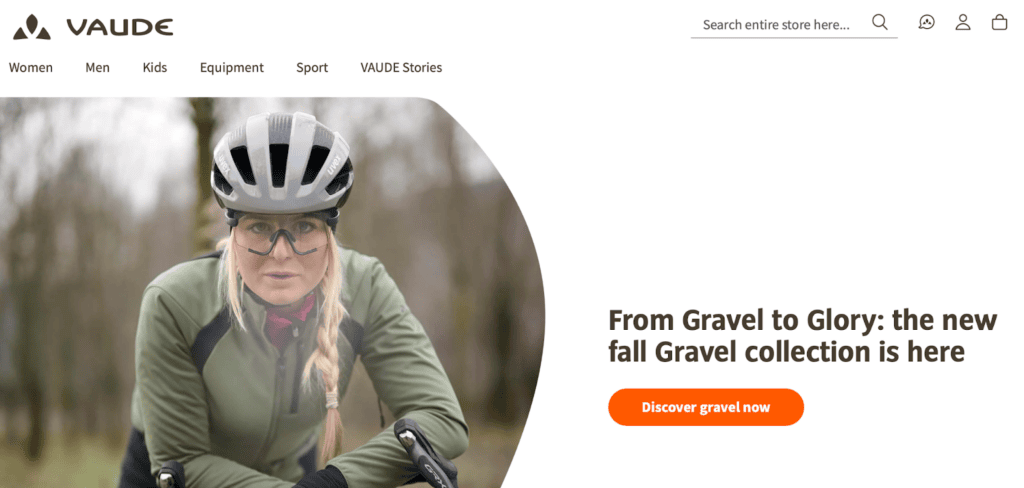
“We design with a focus on minimal material consumption, try to avoid waste and design products that are timeless, durable and repairable.”
VAUDE
🌎
How do they ensure their sustainability?
VAUDE prioritizes sustainability by creating a counterbalance to resource-consuming lifestyles.
- They achieve that by making durable and versatile products for life, minimizing waste during manufacturing, and enabling longer product lifespan with maintaining, repairing, donating, and upcycling guidance. VAUDE opts for materials that combine technical performance and ecological responsibility. An example of this is their use of merino wool, a natural fiber suitable for a warm and water-repellent protective layer that is ideal for mountain sports.
- Meanwhile, they lower the impact of this fabric by adhering to the Responsible Wool Standard and the Global Organic Textile Standard for virgin organic wool and increasing the content of GRS-certified recycled wool in their collection. Furthermore, their products have been certified by Bluesign® and Green Button.
- Regarding their impact, the brand sets science-based climate goals to reduce global emissions as quickly as possible, aligning with the Paris Agreement’s 1.5 degrees in global warming, and is on track with their target as of October 2022, according to Science Based Targets (SBTi). They achieved that by measuring their total carbon footprint and implementing reduction measures in hotspots like material, energy, and transport. Since the beginning of 2022, VAUDE has been a carbon-neutral company, achieved through fully offsetting their global greenhouse gas emissions in the My Climate’s climate change mitigation project in Vietnam, their most important country of production.
🌐
How do they ensure their ethics?
VAUDE ensures ethical practices for both humans and animals involved in their operation.
- They work with the Fair Wear Foundation to monitor their final stage of production, ensuring safe working conditions and fair wages for factory workers. They also audit 100% of their producers in high-risk countries.
- Additionally, VAUDE has a basic policy to support diversity and inclusion in their direct operations and supply chain.
- Regarding animal rights, they follow the Responsible Wool Standard, appropriately addressing sheep’s welfare and the land they graze on.
🤝
Are they part of any giving-back programs?
VAUDE donates FairWertung the products that can’t be repaired but are still perfectly functional. In 2021, VAUDE donated products with a merchandise value of approximately €339,000 (roughly $350,000 USD) to the network, which makes clothes affordable via charity shops or second-hand stores.
🛍️
What is their product range?
- Best for: sportswear (cycling, hiking, skiing) and urban outdoor clothes for women, men, and kids
- Product range: jackets, hoodies, sweaters, shirts, vests, pants, shorts, skirts, functional underwear
- Price range: $$$
- Size range: XS–XXXL
Eileen Fisher: A Sustainable Fashion Brand Focusing on Eco-Friendly Materials and Textile Circularity
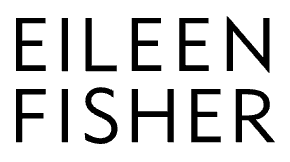

“The Biggest Thing We Can Do Is Reduce”
Eileen Fisher, founder of Eileen Fisher
🌎
How do they ensure their sustainability?
Eileen Fisher’s sustainability efforts focus on using eco-friendly materials, including recycled cotton, organic cotton ,linen, and hemp; reducing greenhouse gas emissions generated from their operations and supply chain; reducing fabric and corporate waste; and recycling the brand’s used clothes back into new products.
- Their commitments to sustainable materials, circular systems, and environmentally friendly practices are demonstrated in initiatives like VISION 2020, Horizon 2030, and Renew.
- They are also certified as a B Corporation and a Bluesign® brand.
🌐
How do they ensure their ethics?
Eileen Fisher is committed to ethical practices.
- They have worker empowerment initiatives such as collective bargaining and the right to make a complaint. For example, their “Our Love, Peru” project supports over 450 families in and around Arequipa with higher fair trade wages and investments in the local community.
- Additionally, their VISION 2020 project, set in 2015, tackled unethical labor practices. They also have a formal animal welfare policy aligned with Five Freedoms. Additionally, Eileen Fishers uses lambswool and sheep wool certified with the Responsible Wool Standard, appropriately addressing the welfare of sheep (and their calves) and the land they graze on.
🤝
Are they part of any giving-back programs?
Eileen Fisher supports many women-owned businesses. The brand has provided, since its inception, many grants for women, including the current program Supporting Women in Environmental Justice.
🛍️
What is their product range?
- Best for: elegant, classic, and casual women’s clothes
- Product range: dresses, blouses, sweaters, cardigans, pants, skirts and outerwear, shoes, accessories
- Price range: $$$
- Size range: XXS–3XL
Finisterre: Ocean-Inspired Sustainable Outdoor Gear Made Ethically

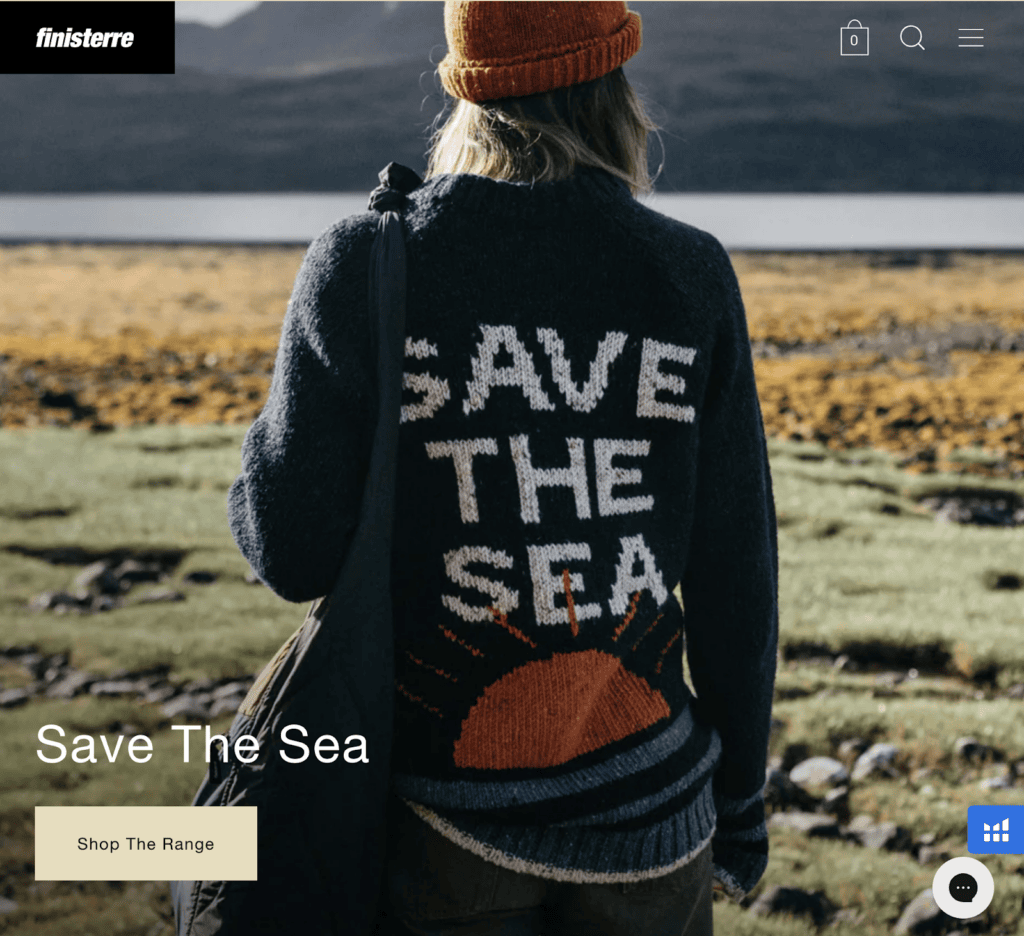
“Yet from our cliff top workshop, we stay true to our original design ethos of functionality and sustainability, remaining committed to product, environment and people.”
Tom Kay, Founder of Finisterre
🌎
How do they ensure their sustainability?
Finisterre places circular sourcing at the center of their sustainability commitment.
- They use renewable and recyclable textiles, as well as biodegradable natural fibers and finishes. At least 50% of their clothes are made using recycled fabrics. For example, in 2022, 87% of the synthetic polymer fabrics used in Finisterre clothes were made using recycled fabrics, including polyester recovered from post-consumer and post-industrial waste. They also use low-impact natural fibers, including GOTS-certified organic cotton, hemp, linen, and bamboo.
- In 2019, they replaced all plastic packaging with water-soluble, ocean-safe, and biodegradable “Leave No Trace” garment bags. Finisterre also strives to reduce textile waste by offering repair services and giving in-store credits for gear trades-in, which would be reconditioned for resale.
- On top of that, they implement various incentives to reduce their carbon footprint, including switching more of their stores and offices to renewable energy tariffs and transporting products using less carbon-intensive modes on land and sea.
- Last but not least, Finisterre is a B Corporation.
🌐
How do they ensure their ethics?
Finisterre is committed to full transparency in their supply chain, holding their partners to the high standards in their Code Of Conduct and their Anti-Slavery & Trafficking Policy.
- Additionally, they partner with Fair Working Conditions (FWC), enabling the mapping of their supply chain, the screening of suppliers, and targeted audits at high-risk locations. Their facilities are also listed on Open Supply Hub.
- Finisterre’s ethical values also extend to their dedication to saving the sea. For example, they provide a free resource to inspire ocean activism.
- Regarding animal rights, they source wool from non-mulesed sheep.
🤝
Are they part of any giving-back programs?
Finisterre provides financial support to various giving-back campaigns and programs through the Finisterre Foundation, championing ocean access for all. For example, Finisterre turned 2021’s Black Friday into Blue Friday, where they swapped discounts for donations, raising funds for The Wetsuit Project, which adapts wetsuits for children and adults with various disabilities to access the sea. In 2022, Blue Friday was used again to raise money supporting Level Water to provide specialist swimming lessons for children with disabilities. Other projects include The Seasuit Project, City Kids Surfing, Seasuit Donation, and Art Auctioning for Good.
🛍️
What is their product range?
- Best for: menswear, womenswear
- Product range: shirts, pants, tops, sweaters, dresses, hoodies, shorts, denim, swimwear, jackets, blazers, sweatshirts, T-shirts, baselayers, socks, shorts,
- Price range: $$
- Size range: XS–XXL
Nui Organics: Put People and the Planet First
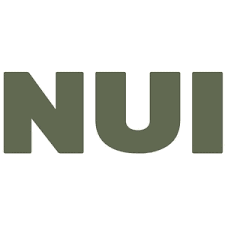
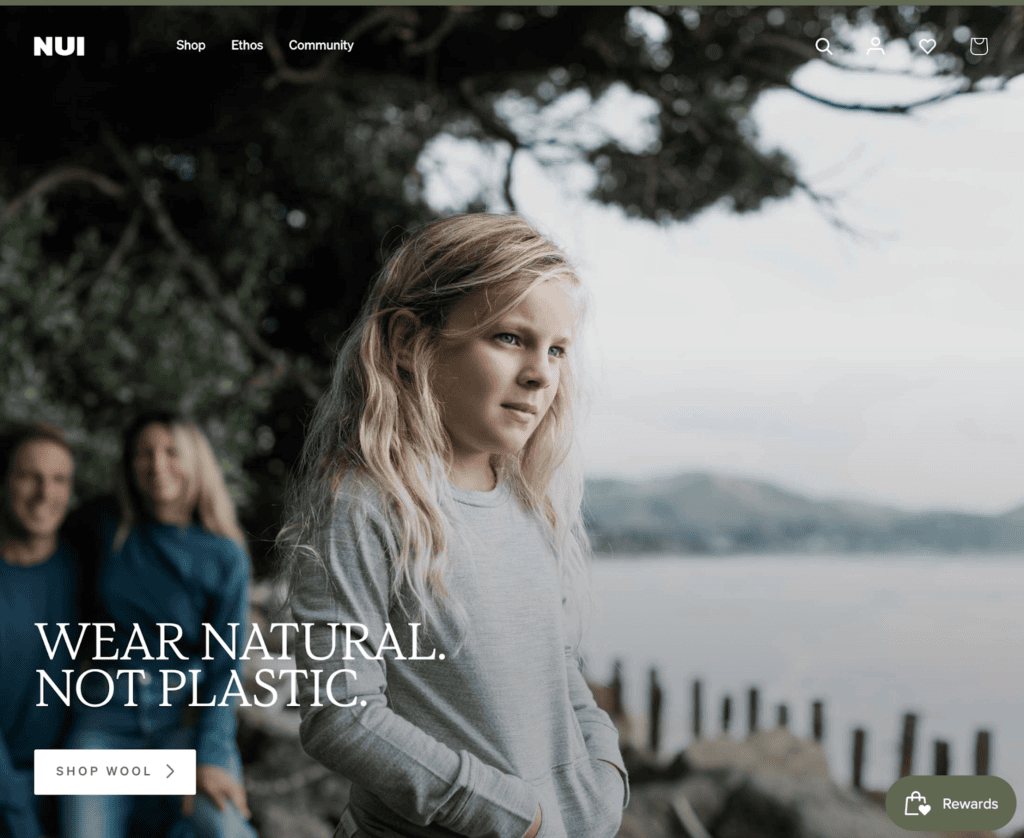
“We create high-quality, low-impact apparel in timeless, long-lasting styles using only sustainable materials and an ethical supply chain.”
Nui Organics
🌎
How do they ensure their sustainability?
Nui Organics approaches sustainability by making long-lasting products with natural materials.
- They use blends of natural fibers, including GOTS-certified organic merino wool, alpaca wool, silk, and GOTS-certified organic cotton.
- Additionally, they have OEKO-TEX® Standard 100 certification, guaranteeing no harmful substances are found in their textile materials. Regarding the manufacturing process, Nui Organics lowers their environmental impacts by relying on renewable energy and integrated processes in manufacturing, using low-impact, non-toxic dyes in most of their products, avoiding harsh chemicals in fabric treatment (for example, no chlorine in merino wool treatment), and treating wastewater the standard of OEKO-TEX® Detox to Zero. They are also certified by Bluesign® for sustainable manufacturing.
- Furthermore, Nui Organics is a part of the Responsible Packaging Movement, actively eliminating single-use plastic and virgin forest fiber from packaging. Their newest collections are delivered in FSC-certified 100% recyclable paper bags.
- Lastly, they run the (re) Nui platform, where customers can buy and sell pre-loved Nui garments to keep them in circulation, reducing waste and bettering the planet.
🌐
How do they ensure their ethics?
Nui Organics works exclusively with factories that share their commitment to ethics and sustainability, both for the environment and for society.
- Their suppliers are also certified by GOTS, OEKO-TEX®, Bluesign®, SA 8000, and SEDEX adhering to ethical practices and improving working conditions.
- Finally, Nui Organics traces and audits most of their partners in the supply chain.
🤝
Are they part of any giving-back programs?
Nui Organics is not known to be part of any giving-back programs.
🛍️
What is their product range?
- Best for: womenswear, menswear, kidswear
- Product range: sweaters, knitwear, tops, blouses, T-shirts, socks, stockings, tights, accessories
- Price range: $$
- Size range: XS–XXL
ASKET: Timeless Clothes Made Under Full Transparency and With Life-Cycle Responsibility
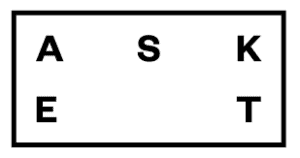

“Our mission is to end overconsumption and restore value to the clothing industry.”
Jakob Dworsky, founder of ASKET
🌎
How do they ensure their sustainability?
ASKET ensures sustainability by reducing waste and using less energy throughout the life-cycle of their garments.
- They tackle the textile waste problem with their Repair Program, which helps keep clothes last longer, and their Revival Program, which diverts used garments from landfills to be repaired, renewed, resold, or recycled. On top of that, they use various recycled fabrics, including GRS-certified recycled wool, recycled cotton, and recycled silk. ASKET also runs a Care Program, helping customers keep their garments fresh longer while using less energy, lowering the environmental impact of the usage stage.
- Additionally, ASKET’s collection includes eco-friendly materials such as organic cotton, linen, and TENCEL™ lyocell. And finally, in an effort to encourage customers to buy and waste less, they are fully transparent about the environmental impact of their clothes.
🌐
How do they ensure their ethics?
ASKET maintains ethics through fair labor practices, responsible sourcing, and a commitment to transparency in their supply chain.
- In 2022, their average traceability score across their entire collection was 96.0%.
- Regarding animal rights, they follow the Responsible Wool Standard, appropriately addressing sheep’s welfare and the land they graze on.
🤝
Are they part of any giving-back programs?
ASKET is not known to be part of any giving-back programs.
🛍️
What is their product range?
- Best for: high-quality, essential, versatile wardrobe pieces
- Product range: tops, sweaters, pants, chinos, jackets, coats, socks, underwear
- Price range: $$$
- Size range: XS–XXL
Organic Basics: A Carbon Neutral Brand Creating Underwear, Activewear, and Everyday Essentials


“We make our basics to be both Earth- and people-friendly — carefully choosing materials and fabrics that care for our environment, only partnering with factories that consider their impact too, and designing all the basics for all bodies.”
Organic Basics
🌎
How do they ensure their sustainability?
Organic Basics promotes sustainability by choosing fabrics based on their environmental footprint and lifetime durability.
- Their clothes are made organic fabrics (cotton certified by the Global Organic Textile Standard), low-impact textiles (TENCEL™ lyocell certified by the STANDARD 100 by OEKO-TEX®), or recycled materials (recycled wool, recycled cotton, and recycled nylon). They use a small percentage of elastane (spandex) in some garments to extend the products’ longevity, which ultimately extends the lifespan.
- Organic Basics is fully transparent about the impact of their products, enabling consumers to understand their share in using the clothes. Organic Basics partners with Made2Flow, which calculates their emissions, and One Carbon World, which helps them reduce and offset all their emissions.
- Finally, they are also a B Corporation.
🌐
How do they ensure their ethics?
Organic Basics works only with trusted, certified factory partners, who ensure that their workplace is free of child labor and forced labor and that their workers enjoy a safe working space, earn a living wage, and benefit from employee perks like free lunches and childcare.
- They show full transparency of the location and practices in their factories.
- Organic Basics also audits or visits most of their suppliers.
🤝
Are they part of any giving-back programs?
Organic Basics donates 1% of the value of all orders to sustainable projects. Their partnership with Beam Impact enables consumers to choose where their 1% donation will go, at no extra cost to the consumers, to support local charities that help Nature Conservation, Ocean Conservation, Rewilding, or Sustainability & Gender Equity.
🛍️
What is their product range?
- Best for: womenswear, menswear
- Product range: underwear, bras, bottoms, T-shirts, tops, sweatshirts, hoodies, knitwear dresses, swimwear, socks, plus-size
- Price range: $$$
- Size range: XXS–XXL
People Tree: The Pioneer to Fair Trade Fashion
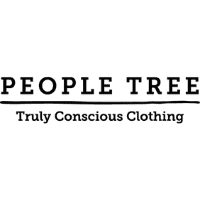
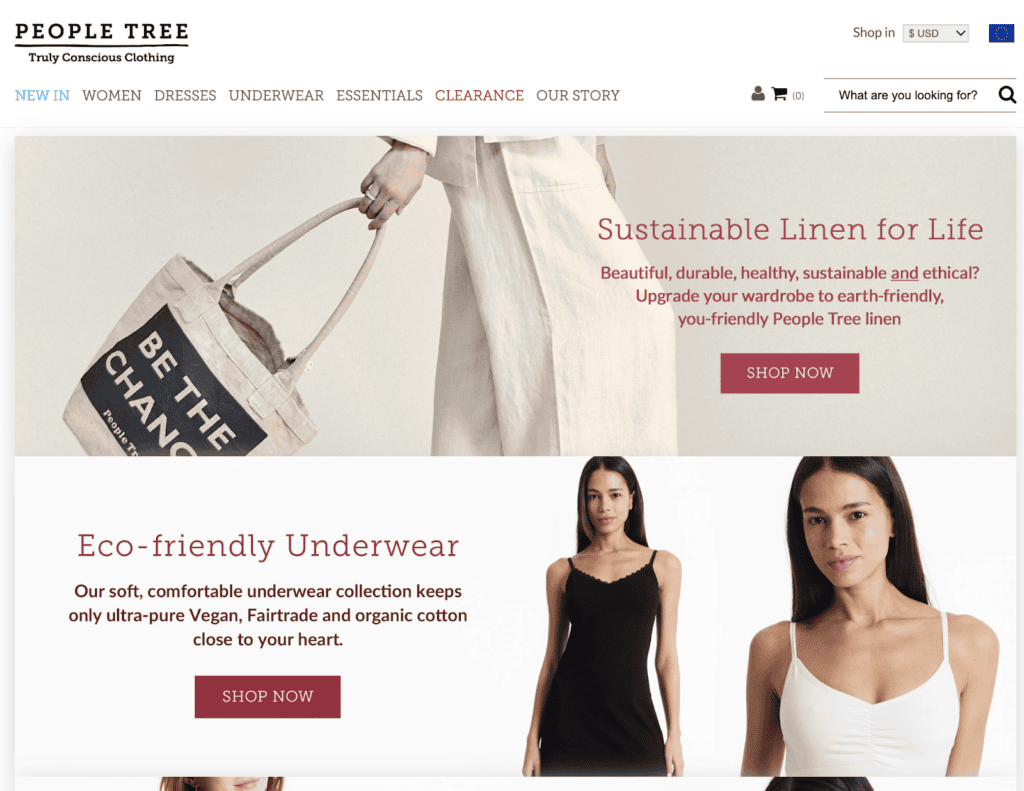
“ We build awareness to empower customers and producers to participate in Fair Trade and environmentally sustainable solutions.”
People Tree
🌎
How do they ensure their sustainability?
People Tree ensures sustainability by opting for low-impact materials, processes, and techniques.
- They only use natural fabrics made with low-impact fibers such as linen and GOTS-certified organic cotton or semi-natural/ semi-synthetic fabrics that follow closed-loop processes (such as TENCEL™).
- The brand also uses low-waste cutting techniques to maximize fabric use.
- Lastly, their packaging is recyclable.
🌐
How do they ensure their ethics?
People Tree puts fair trade and ethical production practices at the core of their brand.
- They are a pioneer of fair trade fashion, guaranteeing better prices, decent working conditions, local sustainability, and fair terms of trade for farmers and workers in the Global South.
- They are also a member of the World Fair Trade Organization, which works on the 10 Principles of Fair Trade, including opportunities for disadvantaged producers and a commitment to no child labor or forced labor.
🤝
Are they part of any giving-back programs?
People Tree is actively involved in initiatives to improve access to education for adults and children in the most vulnerable communities and programs that support people with disabilities and disadvantages. They also campaign for fair trade, sustainability, and social justice.
🛍️
What is their product range?
- Best for: womenswear
- Product range: skirts, dresses, pants, tops, blouses, jumpsuits, socks, underwear
- Price range: $$
- Size range: S–XL
Allbirds: Simple and Comfortable Footwear Made With Nature-Based Materials
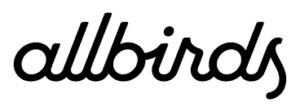
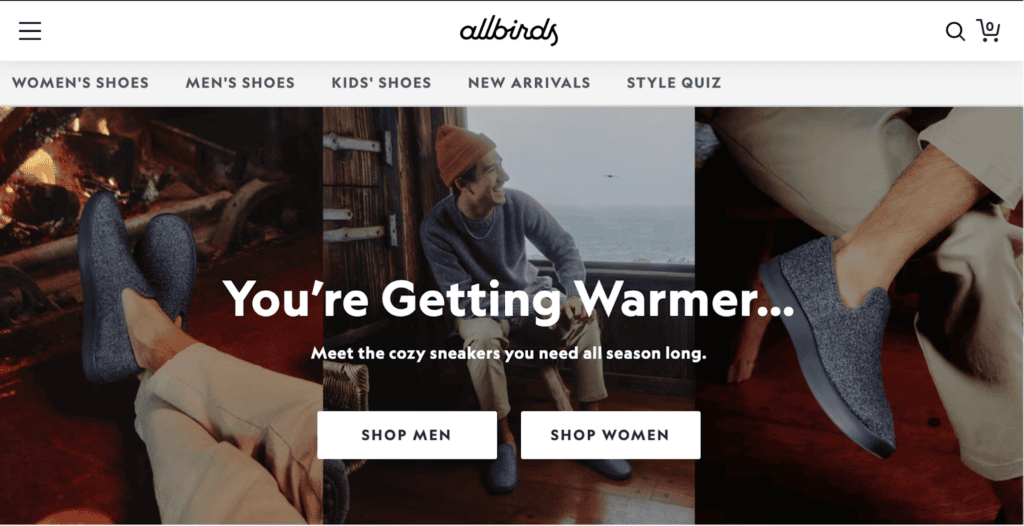
“Reducing the carbon footprint of our products is at the heart of everything we do.”
Allbirds
🌎
How do they ensure their sustainability?
Allbirds ensures sustainability by committing to a concrete plan to achieve net zero carbon by 2030 through meticulously measuring their carbon footprint and working to reduce the emissions beyond carbon neutrality while offsetting the current emissions to operate as a carbon-neutral business.
- They rely on renewable materials, regenerative agriculture, and responsible energy to reduce their carbon footprint. Specifically, Allbirds sources natural and recycled fabrics to replace petroleum-based synthetic textile materials. The brand even invented their own nature-based alternative called SweetFoam®, their shoe sole material derived from the world’s first carbon-negative green EVA (ethylene-vinyl acetate). They’ve also invested in novel solutions, like Plant Leather, a 100% natural, plant-based leather. Additionally, more than 60% of their merino wool currently comes from regenerative agriculture, which has the potential to reverse climate change while promoting biodiversity. Specifically, they combine natural and plant-based fabrics (merino wool, organic cotton, TENCEL™) with recycled synthetic fabrics in their socks.
- Further down the life-cycle, Allbirds actively reduces their carbon footprint in manufacturing and transporting by using renewable energy in their “owned & operated” facilities and their finished goods manufacturers, shipping by boats, and reducing 40% packaging material by using one post-consumer recycled cardboard as a 2-in-1 shoe box/shipping box.
- In spring 2024, Allbirds plans to launch M0.0NSHOT—a net zero carbon shoe (a standard sneaker has an average footprint of about 14 kg CO2 eq).
- Lastly, they encourage buying and selling slightly imperfect and gently used Allbirds products on Allbirds ReRun™ to extend the products’ life-cycle.
🌐
How do they ensure their ethics?
Allbirds has a Supplier Code of Conduct, drawing upon ILO Core Labor Standards to ensure safe working conditions, respect and dignity for workers, and environmentally responsible manufacturing processes in their supply chain.
- On top of that, they require independent, third-party social and environmental audits of their Tier 1 suppliers.
- They also strive for transparency and traceability in their supply chain: 100% of their Tier 1 and Tier 2 suppliers are currently mapped with a target to reach 100% supply chain traceability by 2025.
- Additionally, their Animal Welfare Policy ensures their merino wool is held to high farming standards, land management, and animal welfare. Their merino wool is also certified by ZQ Merino, covering sustainability and ethics from farm to fashion.
🤝
Are they part of any giving-back programs?
Allbirds donates slightly used shoes returned by customers to Soles4Souls, an organization that helps to empower people living in poverty by creating jobs for them. During the COVID-19 pandemic, Allbirds supported healthcare workers by donating shoes and running a “buy one, give one” option, enabling customers to get involved and show appreciation for those making a difference.
🛍️
What is their product range?
- Best for: womenswear, menswear, kidswear
- Product range: shoes, socks
- Price range: $$
- Size range: XS–XXL
Duckworth: Sheep to Shelf™ US-Made Merino Outdoor Clothing

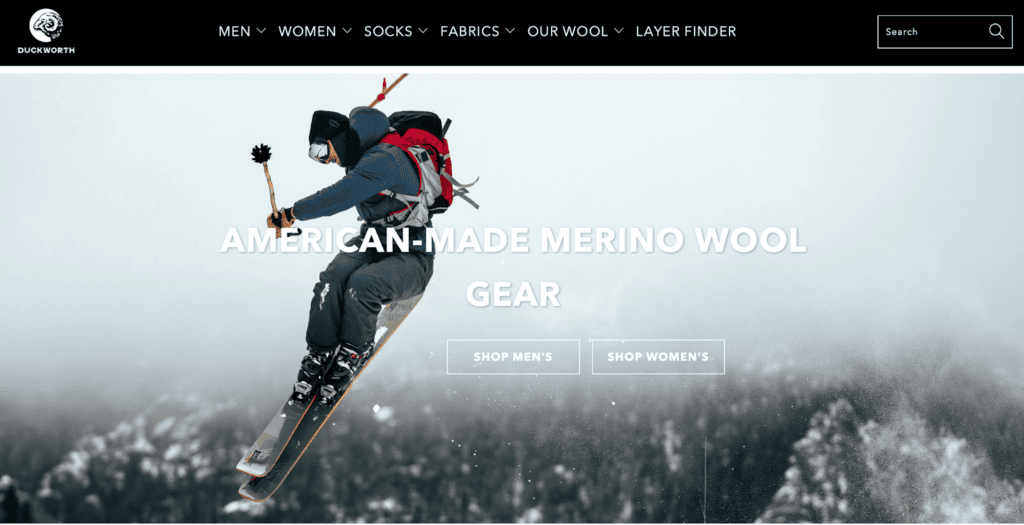
“Our clothes are built to last and perform, tapping sustainable fibers and low-impact processes right here in the US – a combination of ethical practices even our competitors in the Merino Wool space simply can’t match.”
Duckworth
🌎
How do they ensure their sustainability?
Duckworth promotes sustainability by making durable and versatile outdoor apparel using merino wool.
- They source these soft and breathable fibers from the Helle Rambouillet sheep—a close cousin to merino sheep—that roam wildly in the founders’ ranch. The ranch lies from 5,000′ to 9,000′ elevation in the Northern Rockies of Montana, where the conditions are just right for their herd to grow exceptionally soft wool.
- At Duckworth, not only the sourcing stage but the entire process happens in the US, from sheep ranching to wool processing, yarn spinning, fabric milling, and finishing, altogether reducing the carbon footprint of transportation.
🌐
How do they ensure their ethics?
Duckworth is completely transparent about their supply chain from beginning to end. In particular, Duckworth owns their sheep that live as wild animals, coming in contact with humans a few days per year when they’re shaved for the summer months.
🤝
Are they part of any giving-back programs?
Duckworth and the Helle Rambouillet ranch, which grows their merino wool, have recently donated $50,000 to build a new Montana Wool Lab at Montana State University, one of only two wool research and service laboratories in the US. It is an effort to strengthen the US wool industry.
🛍️
What is their product range?
- Best for: menswear, womenswear
- Product range: tops, bottoms, sweatshirts, hoodies, jackets, vests, base layers, socks, accessories
- Price range: $$$
- Size range: XS–XXL
Merino Wool Fabrics: Fine, Odor-Resistant Natural Textiles Good For Both Cold and Warm Weather
Merino wool is a super fine and soft material derived from nature, which can keep you warm in the winter and cool in the summer. Additionally, its high breathability and odor resistance help lower the impact of its usage phase. At the end of their life, pure merino wool fabrics are readily biodegradable and suitable for composting.
Here are the life-cycle stages of merino wool fabrics and each stage’s sustainability assessment:
- Sourcing of merino wool fabrics: The raw material for merino wool fabrics comes from the fleeces of merino sheep, a species specifically bred for fine fibers. Merino wool fibers are considered a renewable resource. Some merino sheep breeds can be shorn for their fleeces as frequently as every two months and yield significant amounts of fibers. The environmental impacts of raising merino sheep for wool and meat depend largely on farming practices. It is sustainable to source from responsible, regenerative, organic agricultural systems that ensure the well-being of the animals and the health of the ecosystem. Sourcing recycled wool is also highly sustainable as it avoids more pressure on natural resources (land and water) that are needed to raise merino sheep.
- Manufacturing of merino wool fabrics: Manufacturing of virgin merino wool fabrics is energy and water-intensive, making wool processing less sustainable. The process starts with collecting sheep’s fleeces. In many cases, the shearing is painful and stressful for the animal. The processes that come after fiber collection are mostly mechanical. Alternatively, manufacturing recycled wool has a high energy demand, particularly regarding breaking down wool waste to retrieve the fibers (shredding or fraying). The mechanical process of breaking down wool waste to recover the fibers often shortens the fiber length and, thus, can’t be repeated indefinitely (to allow recycled wool to be truly circular).
- Transportation of merino wool fabrics: Transporting can be a carbon-intensive stage in the life-cycle of clothing items made with merino wool fabrics due to the distances covered and emissions associated with transporting vehicles. Merino wool fabrics typically travel from pasture lands (virgin merino wool) or collection hubs (recycled wool) to processing and finishing factories, sorting centers, shops, and consumers’ homes before going to recycling centers or landfills.
- Usage of merino wool fabrics: The usage of wool is generally sustainable. Wooly sweaters, socks, and scarves require less frequent washes at lower temperatures. Also, wool fabrics dry on the line instead of electricity-powered driers. Lastly, clothes made with merino wool generally have a long lifespan.
- End-of-life of merino wool fabrics: The end-of-life stage for merino wool is generally sustainable because untreated wool is fully biodegradable and compostable. Blending wool fibers with synthetic fibers increases the strength and durability of the material but reduces their recyclability and degradability.
Merino wool fabrics are on a spectrum from unsustainable to sustainable, with responsible, regenerative, organic, and recycled merino wool fibers making the most sustainable materials. Particularly, recycled wool, merino wool variety included, is often considered a preferred textile option. Recycling wool waste reduces pressure on land, water, and other resources needed to raise animals for their hair or fleece.
Why Is It Important to Buy Products Made of More Sustainable Fabrics
It is important to buy products made of more sustainable fabrics because a sustainable textile industry has a lower carbon footprint, helps save natural resources, and is better for forests, animals, and humans.
Buying Sustainable Fabrics Reduces Your Carbon Footprint
The production of clothing and footwear is estimated to contribute 10% of global greenhouse gas emissions—more than all international flights and shipping combined. If the fashion industry were a country, it would be the fourth largest emitter of carbon dioxide.
One way to reduce the carbon footprint of the clothes you buy is to opt for sustainable fabrics. Sustainable fabrics, which are often made with natural or recycled fibers, have relatively low carbon footprints compared to petroleum-based fabrics. For example, organic cotton made in the US has a carbon footprint of 2.35 kg CO2 (per ton of spun fiber)—a quarter of polyester’s carbon footprint.
Buying Sustainable Fabrics Reduces Demand for Natural Resources and Waste Management
The textile industry uses water and land to grow wool and other fibers. It is estimated that 79 billion cubic meters of water were used for the sector worldwide in 2015. For example, producing a single cotton T-shirt requires as much water as one person drinks for 2.5 years (2,700 liters of fresh water).
Worse yet, the textile economy is vastly more linear than circular: the largest amount of resources used in clothes ended up in landfills (instead of being recycled to remake clothes). According to a report by the Ellen MacArthur Foundation,
- Less than 3% of materials used in the textile economy in 2015 came from recycled sources.
- In other words, more than 97% of resources used in making clothes are newly extracted.
When clothing items are disposed of within a short period of time—under a year in the case of half of the fast fashion clothes—the natural systems that provide raw materials for fabrics don’t have enough time to recover and regenerate, which could lead to ecological breakdown.
Sustainable fabrics are made with less water and emissions while lasting longer:
- Because they are durable, you don’t need to buy new clothes too often.
- Thus, you help reduce the pressure to extract more resources for making new items.
Similarly, making and consuming sustainable fabrics made with recycled materials reduces the demand for virgin materials while helping tackle waste management.
Buying Sustainable Fabrics Encourages Sustainable Management of Forests
Sustainable plant-based fabrics are made with raw materials from forests and plantations that are sustainably managed, such as complying with FSC standards.
When you buy sustainable plant-based fabrics, you discourage unsustainable forestry practices like illegal logging. You can help reduce deforestation, biodiversity loss, and the effects of climate change.
Buying Sustainable Fabrics Encourages Fairer Treatment of Animals
The fashion industry is rife with animal mistreatment when it comes to making animal-based fabrics like wool or silk. Every year, billions of animals suffer and die for clothing and accessories.
Buying sustainable vegan alternatives can help to reduce the pressure on raising more and more animals to meet the demand for animal-based fabrics while sacrificing their well-being and lives.
Suppose you have to buy fabrics made with, for example, wool or silk; make sure you only choose brands committed to cruelty-free products. In that case, you help advocate better treatments for animals raised within the textile industry.
Using Sustainable Fabrics Encourages Fairer Treatment of Textile Workers
Recent statistics from UNICEF estimated as many as 170 million child laborers worldwide, many of whom were engaged in some form of work in the textile industry. They don’t get paid minimum wages and often work long hours.
When you buy sustainable fabrics from brands that are transparent about the working conditions at their factories, you discourage the use of child labor and help promote better working conditions for textile workers.
How Can You Generally Buy More Sustainable Fabrics
The key to sustainably buying fabrics is to check on relevant environmental and original certifications.
For natural fabrics:
- Global Organic Textile Standard (GOTS): A globally-recognized certification system that ensures a certain threshold of organic content has been met. It covers manufacturing, packaging, labeling, transportation, and distribution (but not what happens in the fields where crops are grown).
- USDA Certified Biobased Product: The USDA BioPreferred® Certification is a voluntary certification offered by the United States Department of Agriculture. The certification identifies products made from plants or other renewable materials.
- Ecolabel: Ecolabel is the official European Union voluntary label recognized worldwide for certified products with a guaranteed, independently-verified low environmental impact. The label requires high environmental standards throughout the entire life-cycle: from raw material extraction through production and distribution to disposal. It also encourages companies to develop innovative, durable, easy-to-repair, and recyclable products.
For plant-based semi-natural/semi-synthetic fabrics:
- Forest Stewardship Council: An FSC certification ensures that the wool (or wool-like material) comes from responsibly managed forests that provide environmental, social, and economic benefits.
There are two types of FSC Certification:- FSC Forest Management Certification, with a focus on the origin of the wood—the forest.
- FSC Chain of Custody Certification, which focuses on the path from the forest to the customer’s home.
- Program for Endorsement of Forest Certification: PEFC’s approaches to sustainable forest management are in line with protecting the forests globally and locally and making the certificate work for everyone. Getting a PEFC certification is strict enough to ensure the sustainable management of a forest is socially just, ecologically sound, and economically viable but attainable not only by big but small forest owners.
For recycled fabrics:
- Recycled Claim Standard (RCS): The Textile Exchange RCS was originally developed as an international, voluntary standard that sets requirements for third-party certification of Recycled input and chain of custody.
- The Global Recycled Standard (GRS): The Global Recycled Standard (GRS) is an international, voluntary, full product standard that sets requirements for third-party certification of Recycled Content, chain of custody, social and environmental practices, and chemical restrictions. It can be used for any product with more than 20% recycled material.
For all types of fabrics:
- STeP by OEKO-TEX®: STeP by OEKO-TEX® is an independent certification system for brands, retailers, and manufacturers from the textile and leather industry. It communicates organizational environmental measures, including reducing carbon footprint and water usage.
- OEKO-TEX® Standard 100: OEKO-TEX® labels aim to ensure that products pose no risk to human health (i.e., containing banned chemicals).
Some certifications that are signaling brands’ efforts toward lowered environmental impacts and a circular economy are:
- B Corp Certification: The label B Corp is a certification reserved for for-profit companies. Certified holders are assessed on their social and environmental impacts.
- Cradle2Cradle certification: Cradle2Cradle provides a standardized approach to material circularity. It assesses whether products have been suitably designed and made with the circular economy in mind covering five critical categories: material health, material reuse, renewable energy and carbon management, water stewardship, and social fairness.
Final Thoughts
Merino wool fabrics are on a spectrum from unsustainable to sustainable, largely depending on the farming systems in which merino sheep are raised for their hair or fleece. Responsible, regenerative, and organic wool fabrics are sourced from farms where the welfare of animals and lands are taken care of, leading to higher sustainability. Additionally, recycled wool is among the most sustainable textile materials largely because recycling wool waste reduces pressure on land, water, and other resources needed to raise animals for their hair or fleece.
By purchasing new or pre-loved merino wool clothes from responsible, regenerative, organic systems or recycled materials made by brands that commit to sustainability, you support their mission to create a fairer and less harmful textile industry for all lives on Earth.
Here is the list (again) of the most sustainable hemp clothing brands:
- Patagonia
- VAUDE
- Eileen Fisher
- Finisterre
- Nui Organic
- ASKET
- Organic Basics
- People Tree
- Allbirds
- Duckworth
To make your use of these fabrics even more sustainable, follow these steps:
- Buy second-hand, recycled, or upcycled clothes made with responsible, regenerative, organic merino wool.
- While using merino wool clothes, maximize the number of wears between washes and keep them as long as possible.
- At the end-of-life of your merino wool clothes, upcycle the materials to extend their usage and arrange for them to be recycled or properly disposed of.
Stay impactful,

Sources
- Impactful Ninja: How Sustainable Are Merino Wool Fabrics? A Life-Cycle Analysis
- Impactful Ninja: How Sustainable Are Recycled Wool Fabrics? A Life-Cycle Analysis
- Common Objective: REPORTS & TOOLS | MADE-BY ENVIRONMENTAL BENCHMARK FOR FIBERS
- Science Direct: Life-cycle assessment (LCA)
- Patagonia: Home
- VAUDE: Home
- Eileen Fisher: Home
- Finisterre: Home
- Nui Organic: Home
- ASKET: Home
- Allbirds: Home
- Organic Basics: Home
- People Tree: Home
- Duckworth: Home
- Patagonia: The Climate Crisis Is Our Business
- Patagonia: The Climate Crisis Is Our Business | No More Virgin Petroleum Fibers by 2025
- Patagonia: The Climate Crisis Is Our Business | Is Each Product Worth the Environmental Cost?
- Patagonia: The Climate Crisis Is Our Business | Help Suppliers Cut Emissions
- Patagonia: Environmental Responsibility
- Patagonia: Recycled Wool
- Patagonia: Recycled Cotton
- Patagonia: Hemp
- Patagonia: Man-made Cellulose Fibers
- Patagonia: WORN WEAR
- B Corporation: Patagonia
- Bluesign®: Home
- Fair Trade: Home
- FAIR TRADE CERTIFIED: Improving Lives, Protecting the Planet.
- Patagonia: Social Responsibility
- Patagonia: Fair Trade
- Patagonia: Fair Labor Association
- Patagonia: Living Wage Program
- Patagonia: Migrant Workers Program
- Patagonia: Responsible Purchasing Practices
- Patagonia: Where We Do Business
- Patagonia: For the Love of Merino
- Patagonia: Patagonia Wool Standard (PWS) For Animal Welfare, Land Management and Traceability
- Textile Exchange: Responsible Wool Standard
- Patagonia: 1% for the Planet
- Forbes: Yvon Chouinard And The Patagonia Purpose Trust— What Is It And Will It Work?
- Fast Company: Patagonia uses capitalism to save the planet with the Holdfast Collective
- The New York Times: Patagonia Founder Gives Away the Company to Fight Climate Change
- VAUDE: CSR Report | Produce Philosophy
- Good On You: Brand Directory | VAUDE
- VAUDE: CSR Report | Don’t wash any more than necessary
- VAUDE: CSR Report | Repair Don’t Replace
- VAUDE: CSR Report | Second-hand and donations
- VAUDE: CSR Report | Upcycling
- VAUDE: CSR Report | Material Policy
- VAUDE: CSR Report | Wool
- Green Button: Home
- Science Based Targets (SBTi): Home
- VAUDE: CSR Report | Climate Footprint
- VAUDE: CSR Report | Climate-Neutral Business
- VAUDE: CSR Report | Our Producers
- FairWertung: Home
- Impactful Ninja: How Sustainable Are Recycled Cotton Fabrics? A Life-Cycle Analysis
- Impactful Ninja: How Sustainable Are Organic Cotton Fabrics? A Life-Cycle Analysis
- Impactful Ninja: How Sustainable Are Linen Fabrics? A Life-Cycle Analysis
- Impactful Ninja: How Sustainable Are Hemp Fabrics? A Life-Cycle Analysis
- Eillen Fisher RENEW: Home
- Eileen Fisher: OUR VISION2020 RESULTS
- Eileen Fisher: Our Brand
- B Corporation: Eileen Fisher
- Good On You: Brand Directory | Eileen Fisher
- Eileen Fisher: Community | Love, Peru. Our Fair Trade Project.
- CFDA: HOW EILEEN FISHER IS THE ULTIMATE SUSTAINABLE LABEL
- Seek Capital: 11 Small Business Grants For Women
- Finisterre: Fabric of Finisterre
- Finisterre: Merino Wool Knitwear Guide
- Finisterre: Recycled Fabrics
- Impactful Ninja: How Sustainable Are Recycled Fabrics? A Life-Cycle Analysis
- Global Organic Textile Standard (GOTS): Home
- Finisterre: Impact Reports
- Finisterre: Repair Workshop
- Finisterre: Finisterre x RESKINNED | REPURPOSING OLD GEAR FOR NEW ADVENTURES
- Finisterre: POSITIVE IMPACT REPORT 2022
- B Corporation: Finisterre
- Finisterre: Finisterre – A Positive Impact Business
- Finisterre: Anti-Slavery and Trafficking Policy
- Fair Working Conditions (FWC): Home
- Finisterre: Factories of Finisterre
- Open Supply Hub: Home
- Finisterre: Sea7 | The Materclasses
- Good On You: Brand Directory | Finisterre
- Finisterre Foundation CIC: Grant Making Policy
- Finisterre: Finisterre Foundation | The Wetsuit Project
- Level Water: Home
- Finisterre: Finisterre Foundation | The Seasuit Project
- Finisterre: Finisterre Foundation | City Kids Surfing
- Good On You: Brand Directory | Nui Organic
- OEKO-TEX: OEKO-TEX Standard 100
- Nui Organic: Sustainability
- Nui Organic: Factories
- Nui Organic: Merino Wool
- PrAna: Responsible Packaging Movement
- Nui Organic: (re) Nui
- ASKET: The Repair Program
- ASKET: The Revival Program
- Textile Exchange: The RCS and GRS are designed to boost the use of recycled materials
- ASKET: Materials | Recycled Wool
- ASKET: Materials | Organic Cotton
- ASKET: Materials | Linen
- ASKET: Materials | Lyocell
- ASKET: The Care Program
- ASKET: Full Transparency
- ASKET: TRACKING HOW WE FOLLOW OUR PRINCIPLES
- ASKET: Materials | Traceable Merino
- Organic Basics: FAQ
- Impactful Ninja: How Sustainable Are Natural Fabrics? A Life-Cycle Analysis
- Impactful Ninja: How Sustainable Are TENCEL™ Fabrics? A Life-Cycle Analysis
- Impactful Ninja: How Sustainable Are Recycled Fabrics? A Life-Cycle Analysis
- Made2Flow: Home
- One Carbon World: Home
- B Corporation: Organic Basics
- Organic Basics: Factories
- Good On You: Brand Directory | Organic Basics
- Organic Basics: Our Impact
- Beam Impact: Home
- People Tree: Home
- People Tree: Wool the People Tree way
- Good On You: Brand Directory | People Tree
- People Tree: Our Story
- One World Shop: 10 Principles of Fair Trade
- Allbirds: Sustainability Guide & Practices
- Allbirds: What’s in a Footprint | Sustainability Practices
- Allbirds: Carbon OffsetsSustainability Practices
- Allbirds: Renewable Materials | Sustainability Practices
- Allbirds: Regenerative agriculture | Sustainability Practices
- Allbirds: Responsible energy | Sustainability Practices
- Impactful Ninja: How Sustainable Are Synthetic Fabrics? A Life-Cycle Analysis
- Allbirds: Our Materials | SUGAR
- Allbirds: Our Story
- Allbirds: What is your commitment to sustainability?
- Allbirds: M0.0NSHOT
- Allbirds: Allbirds ReRun™
- Allbirds: Supplier Code of Conduct
- ILO: Labor Standards
- Allbirds: How We Operate
- Allbirds: Tier 1 Suppliers
- Allbirds: Animal Welfare Policy
- Discovery ZQ: Home
- Soles4Souls: Home
- The Robin Report: Allbirds: Pioneering Sustainable Footwear
- Highend Montana: HELLE RAMBOUILLET MERINO WOOL GROWN IN MONTANA
- The Dyrt: Duckworth Relies on Montana-Raised Sheep to Make the Coziest Merino Wool
- Duckworth: Supply Chain & Ethics
- Duckworth: Our Story
- Duckworth: Stewards of The Land: The Sheep Trail
- NORTHERN AG NETWORK: Helle Rambouillet, Duckworth Donate $50,000 to New Wool Lab
- MDPI: Life Cycle Assessment (LCA) of MWool® Recycled Wool Fibers
- MDPI: Textiles for Circular Fashion: The Logic behind Recycling Options
- European Parliament: The impact of textile production and waste on the environment (infographic)
- Science Direct: The challenge of “Depeche Mode” in the fashion industry – Does the industry have the capacity to become sustainable through circular economic principles, a scoping review
- Science Direct: Carbon Footprint of Textile and Clothing Products
- European Parliament: Environmental impact of the textile and clothing industry
- European Parliament: What if fashion were good for the planet?
- Ellen MacArthur Foundation: A New Textiles Economy: Redesigning fashion’s future
- McKinsey: Style that’s sustainable: A new fast-fashion formula
- Forest Stewardship Council: Home
- Our World in Data: Deforestation and Forest Loss
- Our World in Data: Renewable Energy
- Peta: Animals Used For Clothing
- The Guardian: Child labour in the fashion supply chain
- BioPreferred: WHAT IS THE BIOPREFERRED PROGRAM?
- European Commission: Environment | EU Ecolabel
- Forest Stewardship Council
- FSC Forest Management Certification
- FSC Chain of Custody Certification
- Program for Endorsement of Forest Certification
- Impactful Ninja: How Sustainable Are Semi-Natural/Semi-Synthetic Fabrics? A Life-Cycle Analysis
- OEKO-TEX: Certification according to STeP by OEKO-TEX®
- OEKO-TEX: OEKO-TEX® Standard 100
- B Corp Certification: Home
- C2CCertified: Home















